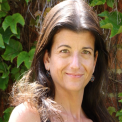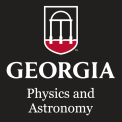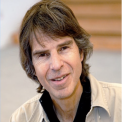In this talk, I will describe my ongoing results of high-resolution astronomical observations of young stellar objects (YSOs) across the Galaxy, and their unique windows into protoplanetary and pre-biotic chemistry. As analogues of the solar nebula, YSOs that are rich in CO isotopologues (12C16O, 13C16O, 12C18O, 12C17O) enable both the study of early exoplanetary systems as well as important comparisons with isotopic measurements in carbonaceous chondrites – the most primitive meteorites and relics of the early solar system. I will present our recent investigations of protoplanetary carbon and oxygen using the iSHELL spectrograph at NASA’s Infrared Telescope Facility on Maunakea, where we obtain near-infrared high-resolution (R ~ 80,000-90,000) data of CO in rovibration (2- and 4-microns) toward a range of YSO environments. Our results have so far revealed heterogeneity in 12CO/13CO in YSOs in our local solar neighborhood, signatures of CO self-shielding in some YSOs, and evidence that binary protostars (the most common configuration) may not follow identical chemical evolutionary pathways. I will also discuss how our recent experiments on interstellar ice analogues at the Jet Propulsion Laboratory help interpret the YSO data. Finally, I will introduce some new projects aimed at communicating research and mission data to the public as part of my role as a research scientist and curator at a large natural sciences museum.
Events Calendar View
-
Departmental Colloquium
Oct 20, 2022
Investigations of Carbon and Oxygen in Young Stellar Objects and Implications for the Early Solar System
-
CSP Lunch Seminar
Oct 25, 2022
Thermodynamic studies of oxygen vacancies in pure and doped SnO2 surfaces
-
Graduate Recruitment Event
Oct 26, 2022
2022 Graduate Recruitment Event
Considering to join the Physics & Astronomy Graduate Program at UGA in 2023? On October 26th at 10:00 am, our department organizes an informal online event, where we provide information on our PhD and MS programs, and how great life is at UGA and in Athens, GA. We'll also be happy to answer your questions during the event.
-
Departmental Colloquium
Oct 27, 2022
The stochastic thermodynamics of computation
One of the major resource requirements of computers — ranging from biological cells to human brains to digital computers — are the free energy costs in running them. These thermodynamic properties of computers have been a long-standing focus of research in statistical physics, going back (at least) to the early semi-formal work of Maxwell and of Szilard.
Recent revolutionary breakthroughs in stochastic thermodynamics are allowing us for the first time to analyze the thermodynamics of computers in a fully rigorous manner. Here I illustrate some of these recent results, including the thermodynamic costs of (loop-free) digital circuits, of Turing machines, and of asynchronous distributed computers like the interacting organelles in a cell.
-
CSP Lunch Seminar
Nov 1, 2022
First-Principles Calculations of Minimally Twisted MoSe2/WSe2 Bilayers
-
Departmental Colloquium
Nov 3, 2022
Understanding optomechanical coupling and nonlinear phononics effects in materials
Controlling optomechanical effects, i.e. the coupling of atomic degrees of freedom with light, is of fundamental importance for quantum sensing, quantum transduction, and quantum machine learning applications. Of particular interest to applications is the stabilization under laser irradiation of states of matter otherwise unstable in thermodynamics equilibrium. In this talk, I will present our recent theoretical progress in understanding the atomic-scale, non-thermal response of materials to visible light. Using first-principles methods as an approximation to the time-dependent Schrödinger equation, I will show how light can result in non-thermal excitations of the atomic lattice in simple materials like III-V semiconductors, and how simple classical models of this response based on generalized Langevin equation can capture the light-induced dynamics. I will then show how non-thermal effects become prominent in more complex, broken-symmetry materials such as Charge Density Wave (CDW) materials. Using the CDW state of the layered transition-metal dichalcogenide, Tantalum Disulfide (1T−TaS2) as a case study, I will show how light can couple with structural order parameter in CDW materials, leading to optomechanical coupling coefficients two orders of magnitude larger than the ones of diamond and ErFeO3, an effect confirmed experimentally. Our findings suggest nonlinear phononics processes in CDW materials can be deterministically controlled to engineer states of matter with large non-linear optical susceptibility.
Page 120 of 121, showing 6 records out of 723 total, starting on record 715, ending on 720





